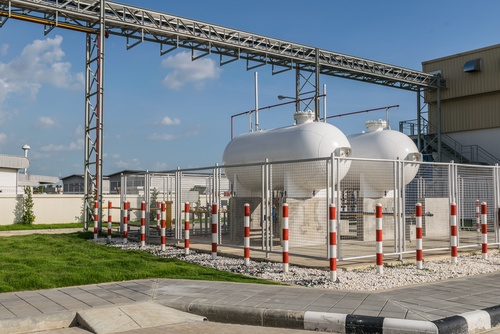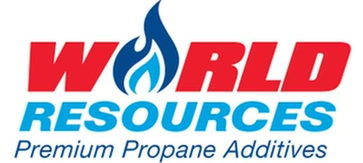Pro 2000-Caloric is a balanced compound consisting of an organic dispersant and emulsifier and a highly effective combustion improving catalyst suspended in a pure hydrocarbon solvent. The combustion catalyst is a solution of organo-metallic compounds, which are completely miscible with propane and provide a more rapid and complete burning of the propane. Detergents and emulsifiers in Pro 2000-Caloric also keep fuel delivery systems and burners free from the effects of sub standard propane containing sulfuric compounds, sodium compounds and carbon, wax, oil and propylene.

Pro 2000-Caloric treated propane releases heat at an average of 9% faster than regular untreated propane. An additional benefit is a 50F. to 100F. degree higher flame temperature resulting in more efficient economical operation of equipment and lower emissions. This translates into less fuel consumption to complete identical tasks. Pro 2000-Caloric also reduces stack emissions dramatically.
Pro 2000-Caloric is not intended to be used in Autogas or Engine fuel. Due to the increased temperatures, Pro 2000-Caloric treated Propane will burn out exhaust valves in engines.
Pro 2000-Caloric can be injected into any size storage vessel prior to filling for immediate mixing. Recommended dosage is one gallon Pro 2000-Caloric into three thousand gallons of Propane.
Memorandum
TO: World Resources’ Chilean distributor
FROM: Rick Hess; World Resources, Ltd. Inc.
RE: Pro 2000-Caloric with Catalyst: Rate of heat release from commercial mixtures of LPG.
At your request, our chemist has conducted studies in his laboratory on the effect of various organo-metallic catalysts on the rate of heat release in the combustion of LPG. These studies are performed in an adiabatic reactor and the total amount of heat released is measured as a function of time. By using this technique he can measure the effect that a catalyst has on the speed of the combustion process. He has performed tests on pure propane and various mixtures of propane with other C-3 and C-4 molecules. The mixture that we told him we were most interested in is one that approximates a commercial mixture that is sold in South America. The mixture that he made up and tested in his laboratory consisted of the following on a volume (i.e. molar) percent basis: 55% propane, 10% propylene, 20% butane, 10% i-butane, and 5% mixture of cis and trans-2- butanes.
The new Pro 2000-Caloric formula gave the greatest increase in heat release of all of the combustion catalysts that he has tested thus far. When the fuel mixture described above was tested at a volumetric treat ratio of 1 part additive to 3000 parts fuel, the rate of heat release was measured to increase by an average of 9% plus or minus 2%.
